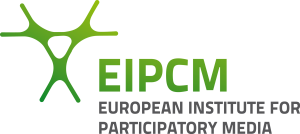Project Description
Current debates about increasing polarization of the online public sphere stress the role of AI-mediated information access in creating and/or amplifying “filter bubbles” and “echo chambers”. Such polarizing developments have been linked to both the biased way in which AI algorithms provide recommendations, as well as to well-known cognitive limitations and biases that hinder people from being able or willing to reflect on the information they encounter online. Taking insights from interdisciplinary research in social and computational sciences, the consortium proposes to develop a new research approach towards reflective AI that challenges the current ways of passive consumption of information and expands the existing affordances of AI technologies to create environments for reflective information practices. This includes not only providing explanations and contextualization of the information recommended by AI algorithms, but also stimulating and empowering people to critically examine information they encounter online, such as to consider alternative perspectives on the conveyed meaning. Developing this research line could lead to shifting the impact of AI technologies towards encouraging more openness and tolerance in the digital society, thus alleviating the challenges posed by societal polarization and encapsulation.
![]() In the final project report we suggest a new framework for the development and use of AI technologies in a way that harnesses the benefits and prevents the harmful effects of AI. We name it Reflective AI. The notion of Reflective AI that we propose calls for adopting a holistic approach in the research and development of AI to investigate both what people need to learn about AI systems to develop better mental models i.e. an experiential knowledge of AI, to be able to use it safely and responsibly, as well as how this can be done and supported.
In the final project report we suggest a new framework for the development and use of AI technologies in a way that harnesses the benefits and prevents the harmful effects of AI. We name it Reflective AI. The notion of Reflective AI that we propose calls for adopting a holistic approach in the research and development of AI to investigate both what people need to learn about AI systems to develop better mental models i.e. an experiential knowledge of AI, to be able to use it safely and responsibly, as well as how this can be done and supported.
Funding programme: Künstliche Intelligenz – Ihre Auswirkungen auf die Gesellschaft von morgen – Planning Grant, Volkswagen Foundation
Project Partners
EIPCM
TU Dortmund
Radboud University
University of Applied Sciences Stralsund
Project Details
- Date Wednesday, November 11th, 2020
- Tags Social Innovation, Active, Gamification, eDemocracy


Comments are closed.